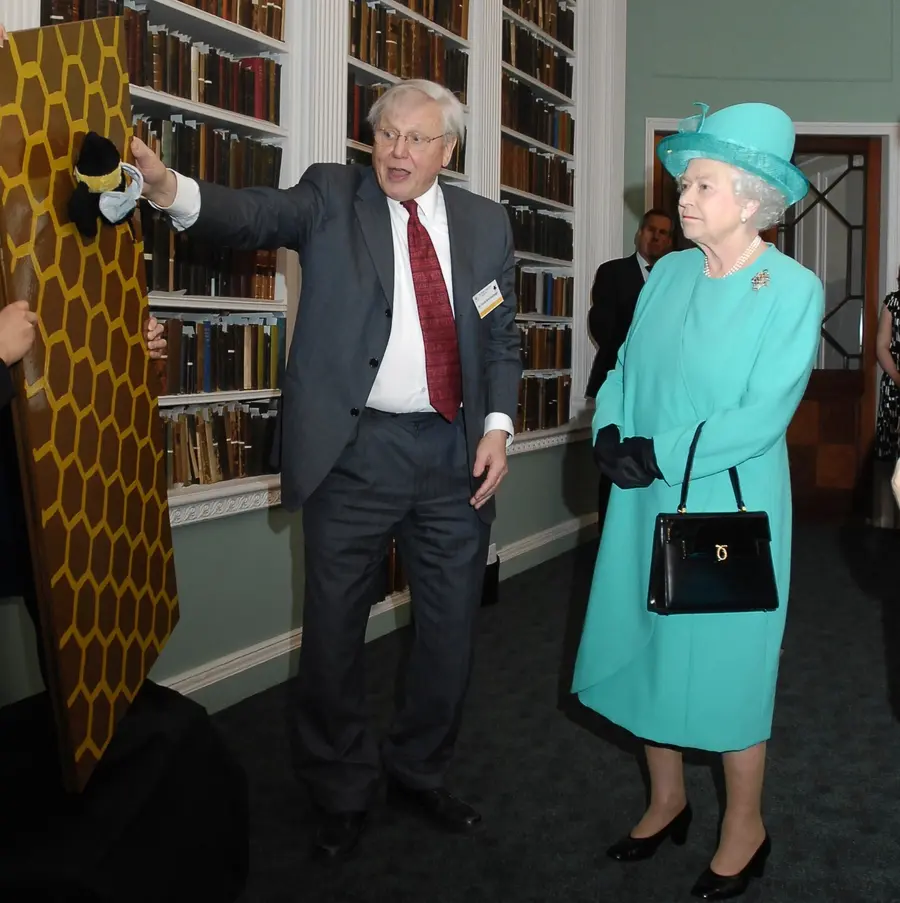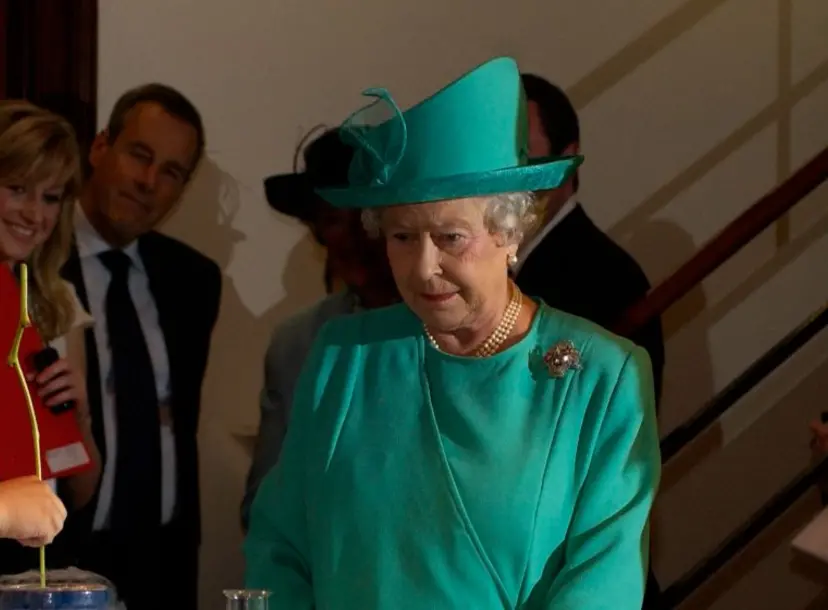Ever since the founding of the Ri in 1799, the institution has maintained links with the Royal Family. On the 29 June 1799, George Finch, Earl of Winchilsea (1752–1826), the President of what until then had been simply the ‘Institution of Great Britain’ reported to a meeting of its committee of managers ‘that he had had the honour of mentioning this Institution to His Majesty (George III), and that His Majesty was graciously pleased to honour it with his Patronage and to allow it to be called the Royal Institution’. From then until now, every reigning monarch on his or her succession has become Patron of the Ri.
In this, the Queen’s 70th year on the throne, it is a good time to reflect her own personal association with the Institution which covers three significant events in the Institution’s history.
Princess Elizabeth, as she was then, was elected an Honorary Member of the Ri in 1949. Her father had earlier been elected as an Honorary Member in July 1930 and had signed the Register of Members on the 24th of that month. On his ascension to the throne in 1937, he became the Royal Patron of the Ri.
On 17 February 1950, Princess Elizabeth attended a Discourse delivered by Neville de Costa Andrade, the newly appointed Professor of Chemistry, on 'The Nature of Light' and signed the Register of Members. Following her ascension to the throne in 1952, the Queen became Patron of the Royal Institution.
This connection between the Queen and the Institution follows that of all previous Monarchs since George III: an interest in up-keeping the Royal Patronage, but no formal or private participation. However, from the 1970s there is a clear change and a marked increase in the connections between the Royal Family and the Royal Institution.
In February 1973, the Queen and the Duke of Edinburgh visited the Ri to formally open the Faraday Museum. While the Ri had always possessed a museum collection, with the first item listed in the accessions register donated in 1800, these items had always just been displayed in Victorian cabinets placed around the rooms of the Institution for members and invited guests only. In 1973, there was an attempt to have a more formal display of Davy, Faraday’s, Tyndall’s, and Dewar’s items around the building, helping to highlight the significant work that had been undertaken within the walls of the Ri as well as communicated.
The Queen and the Duke’s visit marked the first time in the Ri’s history that a reigning monarch had visited the Ri. The Duke also took the opportunity to sign the Register of Members as did the Queen for the second time. During her visit, the Queen declared the Faraday Museum open and unveiled a glass plaque marking the event by sending a signal through Faraday’s electro-magnetic induction ring – the original one!
Her Majesty the Queen visiting the Ri in 1973
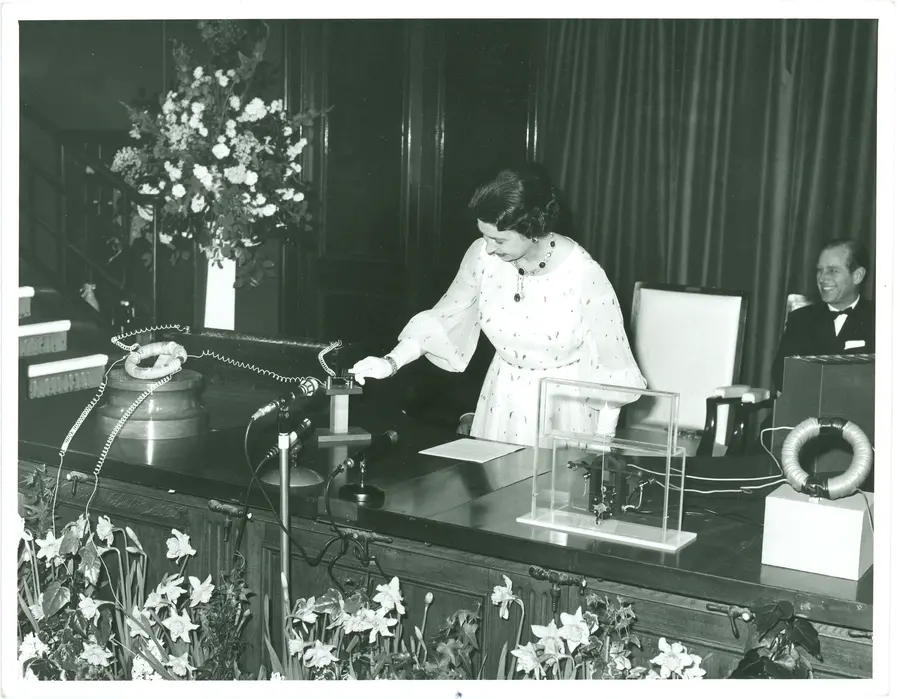
In the later part of the 20th century, the Queen visited the Ri twice. On 8 March 1988 she attended a recital by Melvyn Tan given in the Theatre as part of the 175th Anniversary celebrations of the Royal Philharmonic Society.
Her Majesty the Queen visiting the Ri in 1988
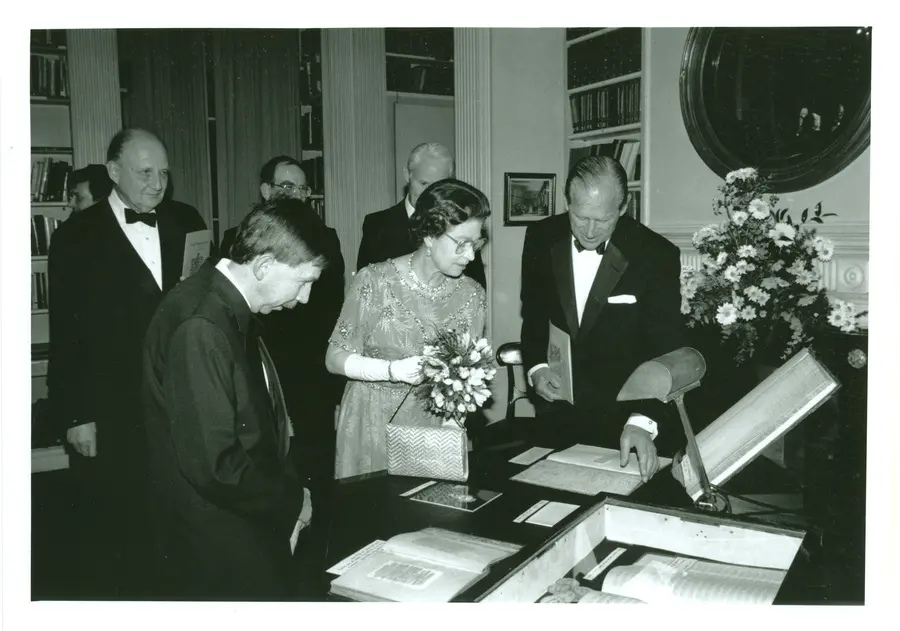
The second visit, accompanied by the Duke of Edinburgh, on 7 December 1999, was as Patron to mark the bicentenary of the founding of the Ri. As in 1973, the Queen again used Faraday’s electro-magnetic induction ring to send the signal to unveil the Bicentenary Bronze Plaque, now located in the main entrance of the Institution. After presenting Colin Pulham with the Ri’s first 'Science in Society' prize, she was shown into the main library where examples of the research work carried out in the Davy Faraday Research Laboratory were on display.
Her Majesty the Queen visiting the Ri in 1999
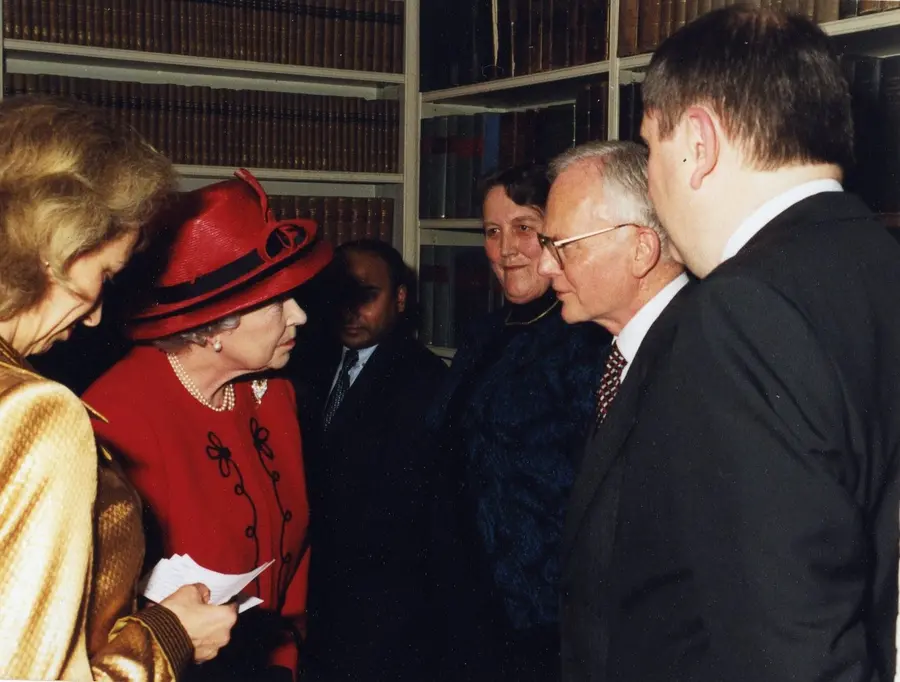
With this visit, the relationship that was established between the Royal Institution and the Royal Family more than two hundred years ago was shown to be thriving. Perhaps the essence of the relationship is best captured in the report of the Visitors for 1869: 'The Institution has always been, and still is, essentially self-supporting, but some portion of its success must undoubtedly be attributed to the distinction conferred upon it by its Royal Patrons'.
The Ri also received a more recent visit by the Queen, when again she was accompanied by the Duke of Edinburgh, to reopen the Ri building after its extensive refurbishment in 2008.
During this visit the Ri was able to highlight elements of its educational programmes with children and staff undertaking experiments and explosive demonstrations before Her Majesty. There was even an opportunity to try some 'liquid nitrogen' ice cream, something which the Duke of Edinburgh enjoyed immensely, and a highlight of Sir David Attenborough demonstrating bees waggle dancing, which they do to communicate.
Her Majesty the Queen visiting the Ri in 2008
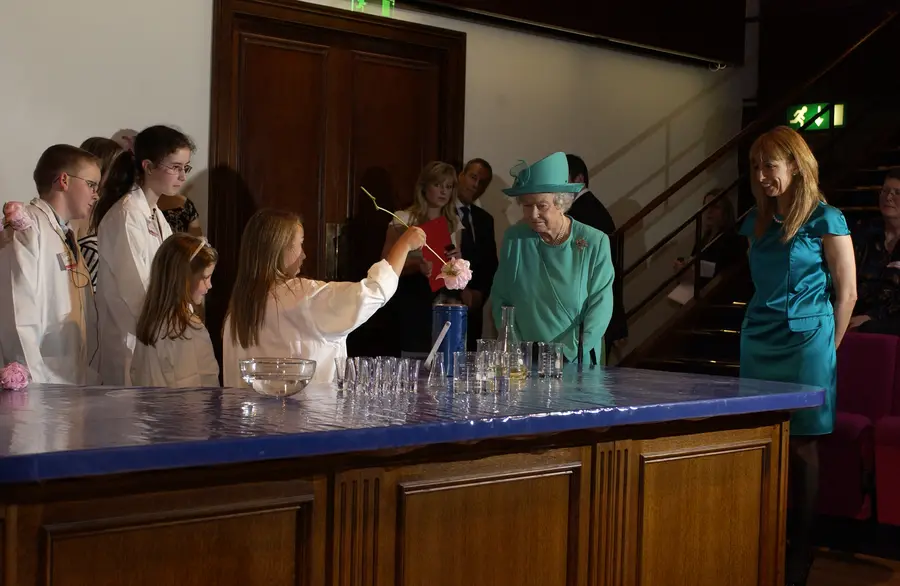
In the last few years, Her Majesty the Queen has stepped back from some of her Royal Patronages, including the Ri, however with the support of the Palace, His Royal Highness The Prince of Wales has taken over as our Royal Patron.
While the Queen may no longer be the Ri’s Royal Patron, her strong support and interest in the Institution over the years has been invaluable to our continued existence and is gratefully appreciated.
Sir David Attenborough demonstrating the bee's waggle dance to Her Majesty the Queen
